Bosques + Gente: A Peruvian collaboration bridging development and conservation
Ver en español
Good for forests, good for people? Enabling conditions for scalable success in Peru’s Conditional Direct Transfers (TDC)
Peru holds the second largest share of Amazon Forest and communal landholders make decisions over more than 65%. As part of their ambitious target to conserve 54 million hectares, the Peruvian Ministry of the Environment (MINAM) uses Conditional Direct Transfers (TDCs in Spanish) to promote forest conservation in land titled to native Amazonian communities. TDCs are financial incentives similar to Payment for Environmental Services (PES), which provide funds for sustainable development alongside community-based conservation plans which ensure the protection of forests in indigenous communities.
In the past 10 years of implementation, some communities exemplify success while others refuse to participate or are suspended for non-compliance. We asked: How can the TDC be improved to achieve long-term conservation and development objectives with repeated engagements and scaling? This question emerged from direct collaboration between MINAM and two universities: Michigan State University (MSU) and Pontificia Universidad Católica del Perú (PUCP). The goal of this research was to identify enabling conditions for success across contexts of TDC implementation. Our conceptual framework analyzed TDC outcomes across four categories of enabling conditions: 1) Governance, 2) Economics, 3) Participation, and 4) Social Impacts. Our findings include recommendations towards improved governance and inter-institutional relationships, mutually beneficial community engagement strategies, and enhanced inclusion to improve gendered and social effects of this innovative PES-like program.
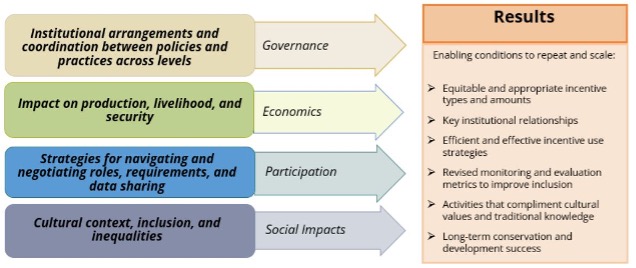
This proposal emerges from direct collaboration between MINAM and two universities: Michigan State University (MSU) and Pontificia Universidad Católica del Perú (PUCP).As the TDC mechanism has been renewed through 2030, our timely research contributes practical, measurable, and actionable strategies for MINAM. Our primary outcome is enabling condition criteria that MINAM’s Forest Program and similar actors can apply and adapt, strengthening conservation interventions with communities in ways that mutually benefit forestry outcomes and community wellbeing. For example, our research introduces the inclusion of gender and women’s issues as an explicit focus area for TDC implementation and M&E. Our research findings also identify strategies for re-engaging native communities that graduated or dropped out of the TDC mechanism.
A special work session with Peru’s Ministries in August 2023 shared findings and key recommendations, improving coordination for development and conservation initiatives and aligning policy strategies. We continue to work with MINAM’s Forest Program to apply research insights towards improving their ongoing and future policy implementation.
Our final report to MINAM highlights 10 recommended actions for improving long-term conservation and development objectives of TDCs with repeated engagements and scaling. It will be released to the public in 2024. Findings will be disseminated via journal articles focused on enabling conditions and benefit sharing.
Team
The lead institution on this proposal is Michigan State University (MSU) and Pontificia Universidad Católica del Perú (PUCP).
- Lauren Cooper (MSU Forestry)
- Rowenn Kalman (MSU Anthropology)
- Deborah Delgado Pugley (PUCP Sociology)
- Cristina Miranda Beas (PUCP Political Science and Government)
- Ciro Alexander Castro Pacheco (PUCP Sociology)
- Anne Larson (CIFOR)
Overview of datasets
- Database of all 274 communities enrolled for the TDC including community characteristics, demographics, and shapefiles.
- 58 in-depth interviews with actors from Peru’s ministries, NGOs, regional government offices, and Indigenous federations addressing TDC implementation specifics and insights on market-based mechanism in Peru.
- 108 interviews with community members with qualitative and quantitative responses using semi-structured questions and an interactive slider scale for Likert questions (see photo below)
- Descriptive case studies of eight communities in two key regions of Peru (San Martin and Madre de Dios) each representing different experiences with the TDC program (active, graduated, suspended, declined or ineligible).
- Content analysis of Peru’s TDC policies since 2010, including programmatic implementation guides, legal agreements with communities, and news reports.
- Qualitative analysis in Atlas.ti identifying subthemes and examples across our four categories of analysis (Governance, Economics, Participation, and Social Impacts).
- Report on gender impacts of TDCs across all categories of analysis.

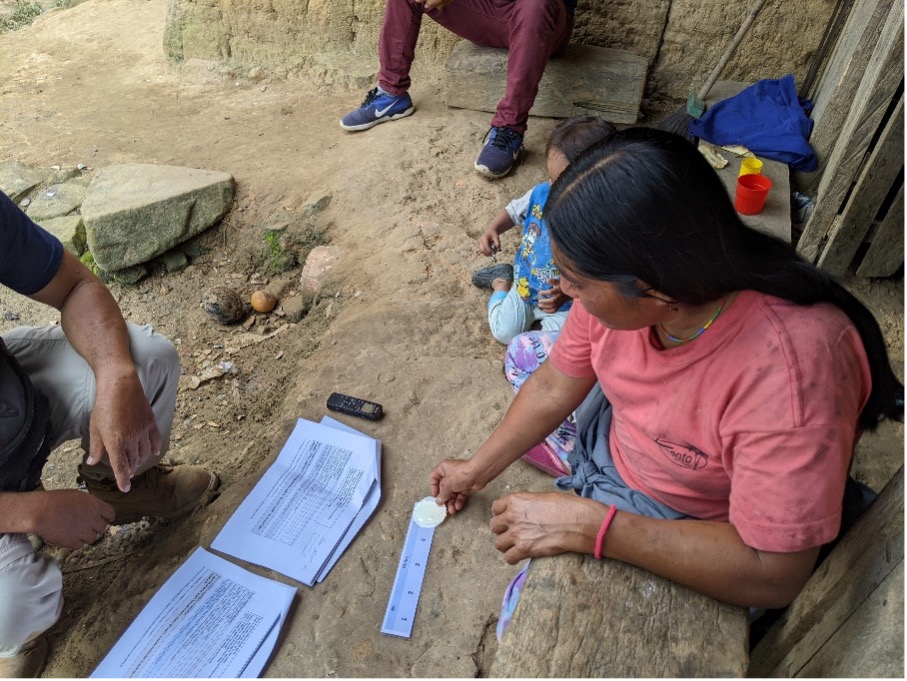
News + Resources:
- Bosques+Gente research is contributing to the Transparent Monitoring project for supporting the Enhanced Transparency Framework of the Paris Agreement, funded by IKI Germany, see (link) and (link).
- Lauren Cooper presents Bosques+Gente research results at the 9th Annual Meeting on Forest and Livelihoods, October 2023 (Learn more).
- Cristina Miranda-Beas presents Bosques+Gente research results at the International Association for Society and Natural Resources Conference, June 2023 (Learn More).
- B+G team members present public webinar in Spanish as part of FCCP’s Red de Aprendizaje: Bosques, Carbono, y Clima de América Latina – Sesión 5: Distribución de beneficios en la conservación forestal (Learn More).
- Cooper and Miranda lead special session at COP15 Biodiversity Summit in the Indigenous Peoples Pavilion, December 2022 (Learn More).
- Lauren Cooper a Contributing Author to the Intergovernmental Science-Policy Platform on Biodiversity and Ecosystem Services (IPBES) Values Assessment (Learn More).
- Rowenn Kalman presents Bosques+Gente research results at the American Anthropological Association Annual Meeting, November 2022 (Learn More).
- Lauren Cooper and B+G team members key speakers at PUCP Round Table: "Forest+People: Perspectives on Economic Incentives for Conservation and Their Social Impact" September 2022 (Learn More).
- MSU and PUCP scholars organize an expert dialogue on Incentives and Market Mechanisms in Forest Conservation for Peru’s Forest Program (Learn More).
- MSU Researchers Awarded Tinker Foundation Grant for Project on Forest Conservation in the Peruvian Amazon (Learn More).
- The MSU FCCP receives Tinker Foundation award supporting Peruvian research project on forest conservation incentives (Learn More).
- MINAM y Michigan State University sign agreement to scientific research and innovation for forest management (Learn More).



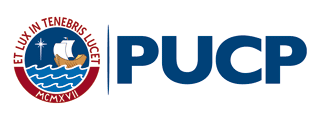
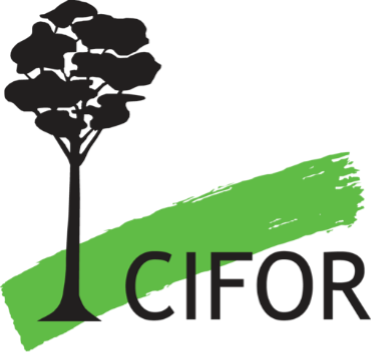
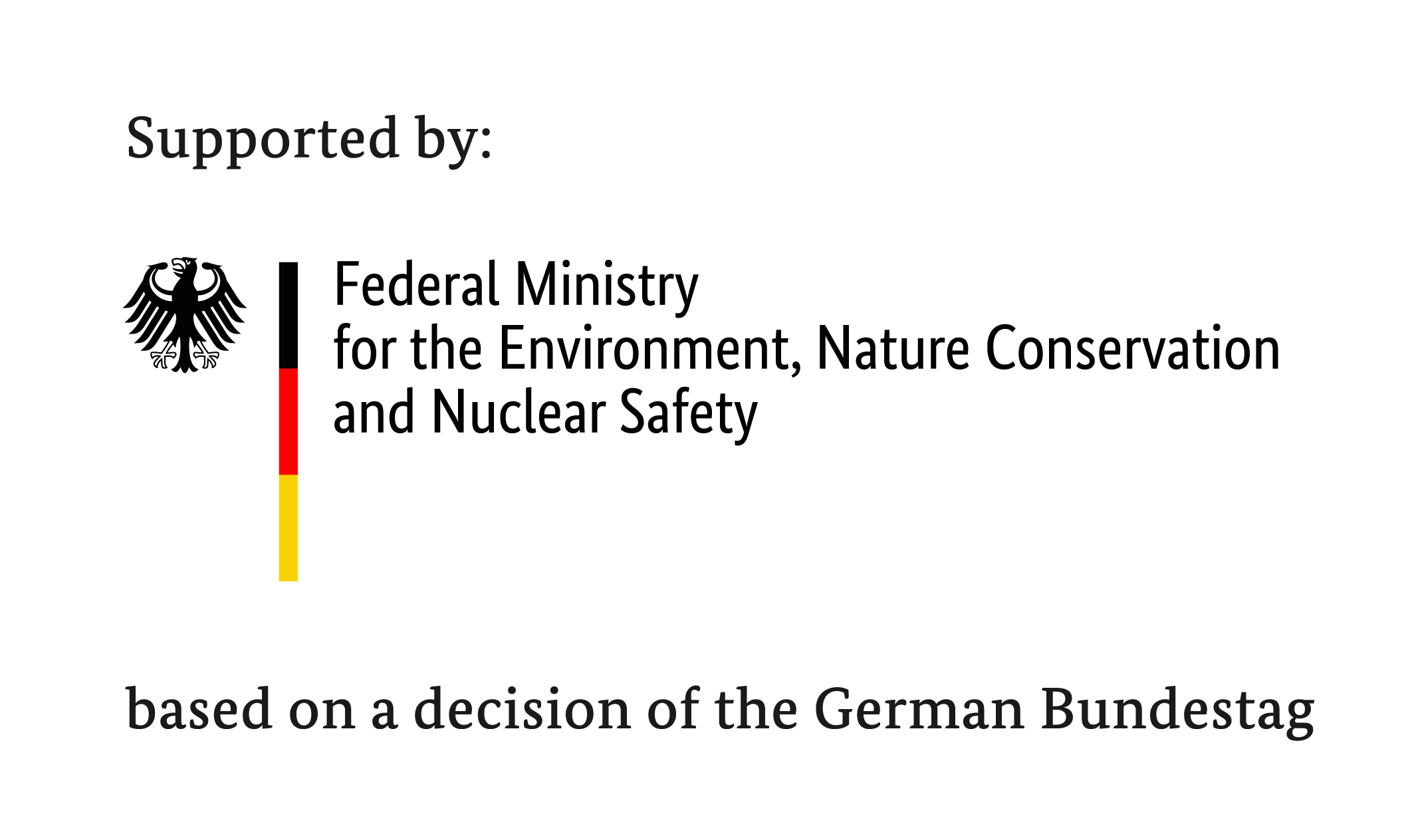.png)
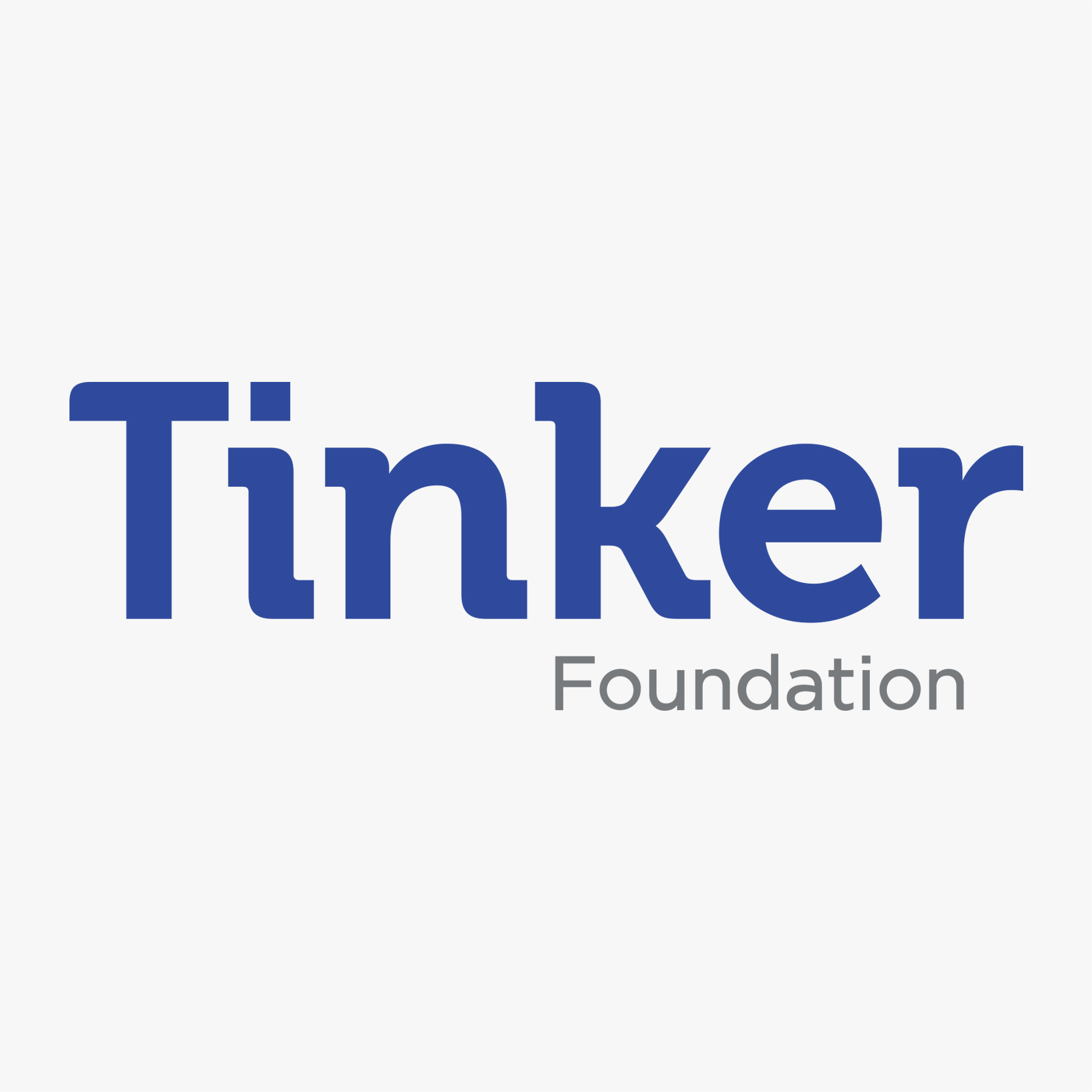
 Print
Print Email
Email